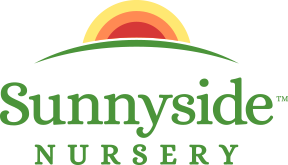Okay, I admit that one of the last things on my mind is planting a fall crop of veggies. It’s all I can do to keep up with the zucchini, beans and pumpkins that the missus planted. They have grown so much that I can hardly get to the garden to plant anything new, even if I wanted to. But the reality is that this heat wave we have been experiencing is going to come to an end. The nights are going to start cooling off and the days will continue to get shorter, which are all triggers for fall crops to germinate and start growing.
As we harvest our summer crops of onions, garlic, beets, carrots, zucchini and beans, we will have new space for planting other veggies and it is important to get them in early enough so they can get established before the soils get too cold for root growth. Late July and early August are the perfect time to sprout cabbage, broccoli and chard as well as direct sow any of the root crops like carrots, radishes and beets. Garden centers will start bringing in packs of lettuce, cabbage and broccoli in early August, so if you don’t want to mess with starting seeds the packs are a great way to go. As always, any time you do a new planting it is essential to amend the soil with compost and enrich it with an organic fertilizer. Remember that whatever you had growing in that space consumed the nutrients in the soil when it was growing and when you harvested it you removed those nutrients with the plant. EB Stone Organics Flower and Vegetable Planting Mix is a fabulous compost to add to the soil because it has been enriched with aged chicken manure, earthworm castings, bat guano, kelp meal and feather meal. It’s the full meal deal in my book and easy to deal with for the small veggie garden. If you are lucky enough to have a large garden, may I suggest trying Bailey’s Compost out in Snohomish or Cedar Grove Compost in Everett. Both of these are an excellent soil amendments and are rich in soil micro-organisms, an essential part of a healthy soil.
While the above composts will add some zip to your soil, you still need to add some fertilizer. Remember, a compost is mostly a soil amendment designed to help the soil retain moisture, improve drainage and enhance the overall life of the soil. A fertilizer is a concentrated source of food for the plant to use as it grows. Organic fertilizers are the best because they release slowly, which means the plant gets just the right amount of food as it needs it and the rest remains in the soil for later use, instead of moving down through the soil, into the water table and ultimately onto the Sound or lake. As an added bonus, organic fertilizers like E.B. Stone Organics Tomato and Vegetable Food have been fortified with soil micro-organisms like mycorrhizae, which are essential to a healthy soil.
Even if you aren’t into planting a fall garden you should at least consider planting garlic. It is probably the simplest veggie to plant because all you have to do (once you have prepped your soil) is merely break your head of garlic into individual cloves and plant them a couple of inches under the soil, 6 inches apart and forget about them.
For more info on growing fall veggies be sure and come to our class on August 1st at 10am where Mary Ann and Andy Sudkamp will regale you with their years of gardening wisdom. In their lot in Everett they manage to grow veggies year ‘round and you can learn how to do it as well.


